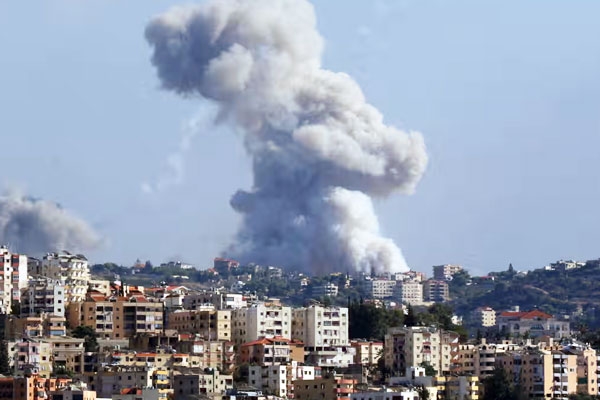
(Image source from: Theguardian.com)
Just hours after Israel carried out its largest-ever airstrike against hundreds of Hezbollah targets on Monday, the Shiite Islamic group Hezbollah claimed at least 100 people were killed in the attack. The attack came amid the fiercest cross-border clashes in the nearly year-long conflict, with Israel shifting its focus to its northern border. Hezbollah has fired rockets into Israel in support of its ally Hamas. War with Israel in Gaza.
Israeli Defense Minister Yoav Galant said in a video released at his official residence on Monday: “We are intensifying our attacks on Lebanon. The actions will continue until we achieve our goal of the safe return of the people of the north to their homes.""These are the days when Israelis must show their calm," he said, after Israeli forces received orders from Iran The Lebanese Health Ministry said Monday's Israeli attack killed at least 100 people, including women, children and medical personnel more than 400 were injured.
In response, Hezbollah announced Monday that it had fired rockets at Israeli military positions. The airstrikes have increased pressure on Hezbollah, which suffered an "unprecedented" attack on Secretary-General Hassan Nasrallah last week in which thousands of its members' pagers and walkie-talkies were blown up. Blame for the operation has been widely attributed to Israel, which has neither confirmed nor denied responsibility.
In another major blow on Friday, an Israeli airstrike on Hezbollah leaders on the southern outskirts of Beirut killed 45 people, the Lebanese Health Ministry said. Hezbollah said the dead included 16 members of the group, including senior leader Ibrahim Akil and another leader, Ahmad Wabi. Israel's emergency services announced that one person was injured in recent rocket fire in northern Israel.
On Monday, residents of southern Lebanon called from a Lebanese number demanding that they immediately move 1,000 meters (0.6 miles) away from any post used by Hezbollah, according to the Reuters correspondent in the south who received the calls evacuation orders were received by telephone to Beirut, the capital of Lebanon.







